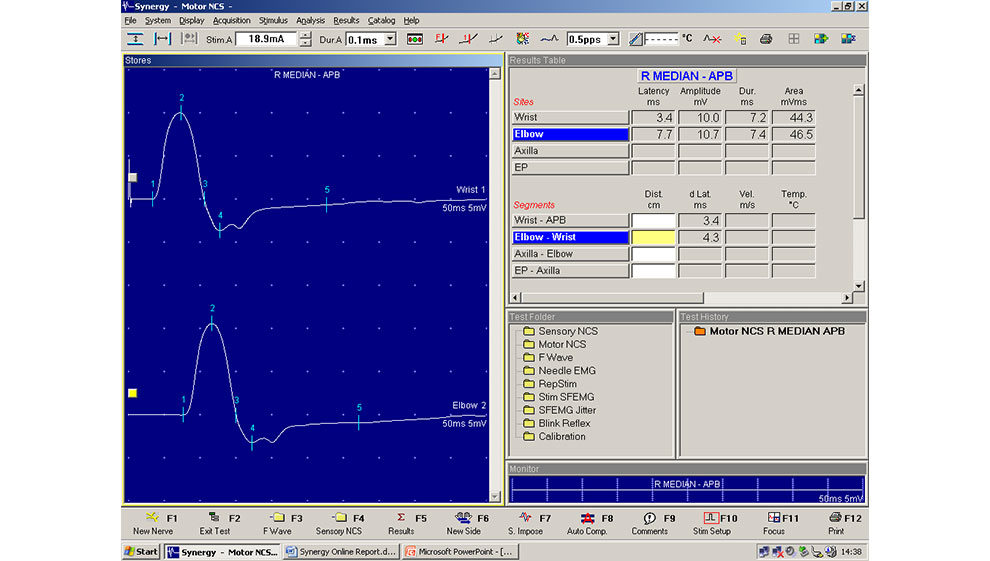Electromyography (EMG) at Cambridge Hospital
- Overview
Or call us on
An electromyography is a test to measure your muscle activity at rest and during use.
What are nerve conduction studies (NCS) and electromyography EMG?



These are tests of the peripheral nerves and muscles that are commonly used to help diagnose weakness, numbness and other symptoms. The term EMG (electromyography) is often used by clinicians to refer to both nerve conduction studies and EMG. There are many causes of weakness or numbness, so sometimes these tests need to be interpreted alongside scan results or other investigations. Not all the conditions that have abnormal nerve conduction or EMG are serious.
What happens before the investigation?
There are no special precautions required. There is no restriction on eating or drinking before, or after, the test. There is no restriction on driving after the test. Patients should continue to take their usual medication as prescribed.
Remember to tell your doctor about any of the following:
Preparing for your test
- Wear loose-fitting clothing as the doctor will need to examine your arms or legs
- Avoid moisturising creams for the day of the test as they can interfere with the recordings
- It’s fine to have a partner or family member accompany you during testing
What happens during NCS?
- Small sticky electrodes are attached to the skin to measure the ability of your nerves to conduct electrical signals
- A short electrical pulse is applied to the nerve (lasting less than one-thousandth of a second) and the response is recorded. During this you will briefly feel a tapping sensation
- The size, shape, and speed of responses from nerves that go to supply muscles, and others from the skin, is recorded.
What happens during EMG?
A single-use very fine, sterile, needle electrode is inserted into the muscle to record the electrical activity when it contracts.
Are there any risks?
Nerve conduction studies are very safe, and can still be performed in patients with pacemakers, and during pregnancy. Adjustments to testing may be made if the patient has a pacemaker or an implanted cardiac defibrillator.
After an EMG the muscle may feel slightly itchy or ache for a few minutes, and there may be a small bruise.
It is a very safe procedure, and significant complications due to bleeding are very rare (less than 1 in 10,000). You can return to your normal activities immediately after the investigation.
If the risks are higher than normal the doctor will discuss this with you to seek consent about how to proceed.
Electromyography (EMG) consultants at Cambridge Hospital
4 Trumpington Road, Cambridge, CB2 8AF
Ways to pay
Nuffield Health promise
Our prices are all-inclusive. We will equal any comparable price. There are no time limits on your aftercare.
Paying for yourself
There are no hidden costs in our treatment prices. The price you see is the price you pay.
Find out morePersonal medical loan
Spread the cost of your treatment with a 10, 12 or 24 month 0% personal medical loan.
Find out moreMedical insurance
We work with you and your insurance provider to get you the treatment you need quickly
Find out more